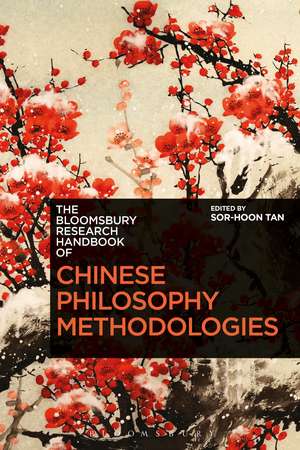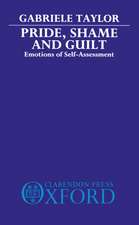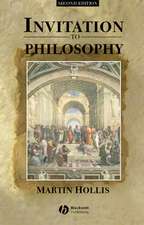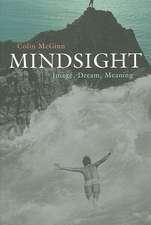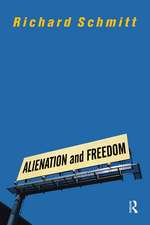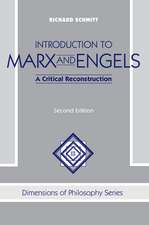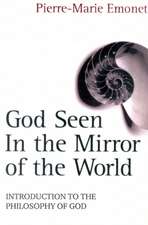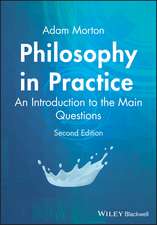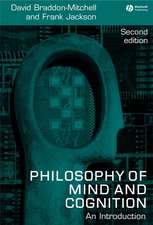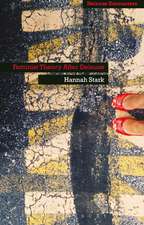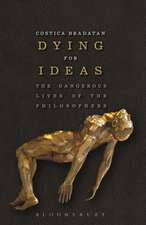The Bloomsbury Research Handbook of Chinese Philosophy Methodologies: Bloomsbury Research Handbooks in Asian Philosophy
Editat de Dr Sor-hoon Tanen Limba Engleză Paperback – 13 dec 2017
| Toate formatele și edițiile | Preț | Express |
|---|---|---|
| Paperback (1) | 243.73 lei 6-8 săpt. | |
| Bloomsbury Publishing – 13 dec 2017 | 243.73 lei 6-8 săpt. | |
| Hardback (1) | 867.25 lei 6-8 săpt. | |
| Bloomsbury Publishing – 24 aug 2016 | 867.25 lei 6-8 săpt. |
Preț: 243.73 lei
Preț vechi: 276.89 lei
-12% Nou
Puncte Express: 366
Preț estimativ în valută:
46.64€ • 48.69$ • 38.60£
46.64€ • 48.69$ • 38.60£
Carte tipărită la comandă
Livrare economică 04-18 aprilie
Preluare comenzi: 021 569.72.76
Specificații
ISBN-13: 9781350058040
ISBN-10: 1350058041
Pagini: 392
Dimensiuni: 234 x 159 x 33 mm
Greutate: 0.66 kg
Editura: Bloomsbury Publishing
Colecția Bloomsbury Academic
Seria Bloomsbury Research Handbooks in Asian Philosophy
Locul publicării:London, United Kingdom
ISBN-10: 1350058041
Pagini: 392
Dimensiuni: 234 x 159 x 33 mm
Greutate: 0.66 kg
Editura: Bloomsbury Publishing
Colecția Bloomsbury Academic
Seria Bloomsbury Research Handbooks in Asian Philosophy
Locul publicării:London, United Kingdom
Caracteristici
Discusses historical developments, current concerns and methodological challenges found in Confucianism, Daoism and Buddhism
Notă biografică
Sor-hoon Tan is Associate Professor in the Department of Philosophy at the National University of Singapore.
Cuprins
List of ContributorsIntroduction: Why Methodology Matters in Chinese Philosophy, Sor-hoon Tan Part I: Philosophizing with Traditional Chinese Texts1. Philosophizing with Canonical Chinese Texts: Seeking an Interpretive Context, Roger T. Ames2. Methodological Reflections on the Study of Chinese Thought, Kwong-loi Shun3. On What It Means to 'Let a Text Speak for Itself?', Ronnie Littlejohn4. Academic Silos, or, What I Wish Philosophers Know about History, Michael Nylan5. Contextualization and De-contextualization: Studies of Chinese Philosophy from a Trans-cultural Context, Ming-Huei LeePart II: Methods from Practice6. Kungfu Method in the Analects and Its Significance Beyond, Peimin Ni7. Methodological Inspirations from Teaching Chinese Philosophy, Sarah Mattice8. Confucianism and Pragmatist Methods: Keeping Faith with the Confucian Moral Mission, Sor-hoon TanPart III: Adapting Borrowed Methodologies9. Chinese Metaphysics Methodology in a Cross-Cultural Context, Franklin Perkins10. On Constructive-Engagement Strategy in Studies of Chinese Philosophy, Bo Mou 11. Issues and Methods of Analytic Philosophy in Chinese Philosophy, Yiu-ming Fung12. Travelling Around the Threshold: Continental Philosophy and the Comparative Project, David Jones 13. Chinese Bodies in Philosophy, Aesthetics, and Politics: Methodologies and Practices, Eva K.W. ManPart IV: Critiques and future possibilities14. Methods from Within the Chinese Tradition,Leigh Jenco 15. Methodology in Chinese-Indian Comparative Philosophy, Alexus McLeod16. Daoism, Naturalism, and Chinese Culture, Lisa Raphals17. Interdisciplinary Methods in Chinese Philosophy: Comparative Philosophy and the Case Example of Mind-Body Holism, Edward Slingerland18. Chinese Philosophy as Experimental Philosophy, Hagop Sarkissian and Ryan NicholsIndex
Recenzii
Tan (National Univ. of Singapore) has put together an exemplary resource, one of what will be many titles in the "Bloomsbury Research Handbooks in Asian Philosophy" series. Tan's thorough introduction is worth a careful read, because it identifies major questions, offers advice, and sheds light on what is at stake in bringing Chinese and Western philosophy together . Many of the contributors have published major works that bring Chinese philosophy to a Western audience, so they have many insights to offer, not only about the limitations and potential of various methodologies but also about important historical details that could be lost in Western methodologies. The advice about translations is excellent, as are the pedagogical lessons and the comparative opportunities. This is an indispensable guide for researchers, and it would make a fantastic text for a graduate course. Summing Up: Essential.
In my experience, some philosophers and other scholars who have no familiarity with the Chinese tradition are hesitant to study or even discuss it, because they worry that the subject requires some methodology so different from their own that anything they might say would be horribly misguided, and the "entry costs" for acquiring the appropriate methodology are so high in terms of the time and effort required that it is not practically feasible for them to achieve even a rudimentary conversational competence in the area. One strength of Sor-hoon Tan's anthology is that it can help assuage such worries, for it conveniently collects such a wide variety of approaches that, almost regardless of your own orientation, you can find someone in the volume advocating or applying a kindred methodology to the Chinese materials.
In my experience, some philosophers and other scholars who have no familiarity with the Chinese tradition are hesitant to study or even discuss it, because they worry that the subject requires some methodology so different from their own that anything they might say would be horribly misguided, and the "entry costs" for acquiring the appropriate methodology are so high in terms of the time and effort required that it is not practically feasible for them to achieve even a rudimentary conversational competence in the area. One strength of Sor-hoon Tan's anthology is that it can help assuage such worries, for it conveniently collects such a wide variety of approaches that, almost regardless of your own orientation, you can find someone in the volume advocating or applying a kindred methodology to the Chinese materials.
